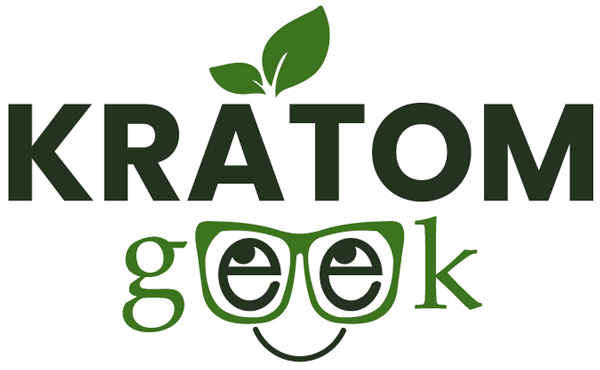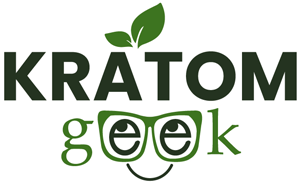At Kratom Geek, we frequently discuss how the Food and Drug Administration (FDA) has lost sight of its original purpose. So today, we’re going to illuminate that argument. We’ll show you precisely what we mean. But before we do that, we need to present to you the purpose of the program in our government. And we’ll start by sharing the agency’s goals with you. But you don’t have to take our word for it. We’ll impart this knowledge to you through the administration’s own words on its website. According to the FDA’s site, it lists its mission statement as:
“The Food and Drug Administration is responsible for protecting the public health by ensuring the safety, efficacy, and security of human and veterinary drugs, biological products, and medical devices; and by ensuring the safety of the nation’s food supply, cosmetics, and products that emit radiation.”
A lot of Americans still look over a label to find the seal of approval from the federal agency that states the product is FDA approved.
The FDA also says that it’s responsible for helping to advance the public health of our nation by speeding up innovations that make medical products safe, effective, and affordable. And the agency presents the populace with accurate, science-based information to assist our nation’s citizens with medicinal products and foods that improve one’s health.
But does the FDA fulfill those obligations? Or, instead, does the FDA work to assist the corporate interests entwined with the federal government and its politicians?
The FDA Approved OxyContin
The FDA is supposed to look out for the public’s health. But in 1995, the FDA approved OxyContin for Purdue Pharma. Our government knew of the dangers of opiate-derived drugs. The US witnessed it firsthand in other countries. Yet, the FDA turned a blind eye to OxyContin. The pill wasn’t anything new. It was the same oxycodone already prescribed, but it had a slightly tweaked approach. The company had created a new controlled-release formula, allowing someone to dose a higher amount every 12 hours instead of smaller amounts every 4-6 hours. Within five years, overdoses by opioids in America had begun spiraling out of control.
Then in 2010, the FDA approved another formulation for OxyContin. The new formulation made it more difficult to abuse the pills, so it was a small improvement. However, this should have been the type of formula already on the market. But it still did nothing to address the millions of suffering addicts that became addicted to the company’s drugs in the first place.
Even though an estimated 10.3 million Americans aged 12 and older misused opioids in 2018, overdoses had finally fallen slightly for the first time in 25 years during 2018. Yet a resurgence of those deaths was witnessed in 2019 when it reached over 71,000. Now, it appears that 2020 will continue that trend, with overdoses rising along with the pandemic numbers. But Purdue Pharma won’t be held accountable. The company filed for bankruptcy at the end of 2019 to skirt the lawsuits.
The FDA Mandates Regulations to Assist the Tobacco Industry
Another essential function of the FDA is the agency has the responsibility to regulate the manufacturing, marketing, and distribution of tobacco products to protect the public health and to reduce tobacco use by minors. But instead of remaining focused on the deadly tobacco industry that has left countless lives in shambles dealing with lung cancer, it turned to the vape industry instead. And that’s because the tobacco industry has deep ties with our government.
Earlier this year, the Trump administration announced its move forward with a soft-ban on less traditional flavored E-cigs. That news rocked the vape community. Ever since 2016, when the FDA mandated that electronic cigarettes would become regulated as tobacco products, the federal agency has kept its crosshairs on the industry.
Now, just this week, on September 9th, 2020, the Premarket Tobacco Product Applications (PMTA) deadline for e-cigarette companies finally arrived. The PMTA had been an ongoing process orchestrated by the FDA since 2007—when the Family Smoking Prevention and Tobacco Control Act (TCA) had been created with assistance from lobbyists and lawyers in the tobacco industry. They wrote the bill to hamper the expanding e-cigarette industry that was moving into American markets.
Even with scientific studies supporting the argument that nicotine vapes are safer for your health than cigarettes, the FDA continued its war against the E-cig industry for the tobacco barons, even though cigarette deaths account for almost 6 million deaths every year. This instance lets us know who the FDA tries to appease.
Big Pharma Wants the FDA to Ban Kratom
With a growing opioid epidemic in America that doesn’t seem to be slowing down, you would think our government would be relieved to learn about kratom. It’s a plant from Southeast Asia that scientific studies suggest provides pain relief. But a fascinating fact about kratom is that experiments also propose that it doesn’t have the dreaded side-effect of an abuse potential that regularly prescribed painkillers carry.
But the government agency appears to want to stop its importation into our county. Earlier this year, the FDA even tried to stop mail couriers from allowing kratom vendors to use their services. And that’s just on top of all the misinformation the agency spread about kratom for the past decade. The FDA fills every piece of literature it supplies about kratom with incorrect data. It does that to try and skew the facts that are available to the public.
No matter how many studies prove that kratom is not the dangerous substance the FDA promotes through the agency and its newsletters, the organization refuses to listen to any logic and facts. Plus, they turn a deaf ear to all the constituents that speak up about how kratom has saved their lives. And that defies all reason.
The FDA is supposed to be working to protect the health of our country. But in the several instances that we’ve provided, they’re doing the opposite. Every one of those scenarios showcases an all-powerful industry calling the shots behind the scenes. And that’s not a coincidence.
The FDA Refuses to Perform its Duties
Now, I’m not totally against the FDA. It does serve a valuable purpose for our country. The FDA was birthed from a noble concept: the idea that manufacturers and snake-oil salesmen should not be allowed to exploit Americans through deceit, which had become a massive problem by the start of the 20th Century.
Before the Industrial Revolution, the federal government took a hands-off approach to food and drugs in the United States. But with the development of new manufacturing practices like canning, it allowed food products to be shipped around the country and stored for long periods. At those times, canned goods didn’t have expiration or packaged dates on them. Instead, the only way you could tell the product was going bad was when cans started to swell from the bacteria growth inside them. Otherwise, citizens played Russian roulette with those food items. And you don’t want to get me started on the unsanitary conditions that plagued American factories up to this point.
The drug industry was no different. People were putting opiates and cocaine in everything to get people high enough to feel better from an ailment, but not treating the condition. Nevertheless, companies marketed these pharmaceutical items as cure-alls for everything. But instead of a cure, those unlucky victims became addicts.
So, the government created the FDA to perform a valuable task for Americans. Unfortunately, like all bloated government programs, it’s overstepped its bounds. Now, it acts as an arm of corporate interests: American lives be damned.






